This special report unpacks the decades-long mystery behind Nigeria’s endlessly funded yet perpetually broken refineries, exposing how billions meant for maintenance vanished while ordinary citizens pay the price at the pump and in their pockets. Korede Abdullah, Africa Health Report Southwest correspondent writes.
The Refinery Conundrum: A Legacy of Failure
Nigeria’s state-owned refineries in Port Harcourt, Warri, and Kaduna have long been symbols of systemic dysfunction, with billions of dollars spent on maintenance yielding little to no results. Group Chief Executive Officer of the Nigerian National Petroleum Company Limited (NNPCL), Bayo Ojulari, recently hinted at a potential sale of these facilities, citing their obsolescence and the failure of rehabilitation efforts.

His remarks, made during an interview with Bloomberg at the 9th OPEC International Seminar in Vienna on July 10, 2025, echo concerns raised by Alhaji Aliko Dangote, who estimated that approximately $18 billion has been spent on these refineries with no tangible output.

“We’re reviewing all our refinery strategies now. We hope before the end of the year, we’ll be able to conclude that review. That review may lead to us doing things slightly differently,” he stated.
Asked if that could include selling off the refineries, Ojulari said, “What we’re saying is that sale is not out of the question. All the options are on the table, to be frank, but that decision will be based on the outcome of the reviews we’re doing now.”
This staggering figure raises questions about the management of these funds and the persistent inability to restore the refineries to operational status, leaving Nigeria reliant on imported fuel despite its vast oil reserves.
Historical Mismanagement: A Pattern of Waste
Africa Health Report (AHR) findings show that the refineries’ troubles are not new. Former President Olusegun Obasanjo has repeatedly criticized the mismanagement, noting that the NNPCL was aware of the refineries’ inoperability.
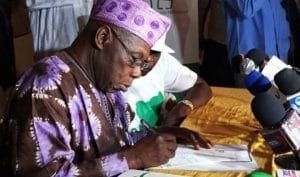
In 2007, a deal to sell the Port Harcourt and Kaduna refineries to a consortium led by Dangote and Femi Otedola for $750 million was aborted by Obasanjo’s successor, Umar Yar’adua, following claims that the sale undervalued the assets.

Obasanjo later remarked, “NNPC knew they could not do it, but they knew they could eat and carry on with the corruption.” This decision, influenced by the NNPCL’s assurances, set the stage for further financial hemorrhage, with over $2.9 billion approved for rehabilitation between 2010 and 2021, including $1.5 billion for Port Harcourt and $1.48 billion for Warri and Kaduna, according to the African Democratic Congress (ADC).
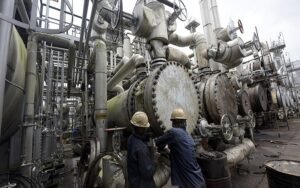
AHR gathers that despite these repeated interventions, none of the refineries has consistently produced fuel at a profitable capacity in over two decades despite the billions of naira pumped into them. Industry analysts argue that the funds spent on turnaround maintenance (TAM) have largely gone unaccounted for, with successive governments and NNPCL leaderships making promises that were never fulfilled.


Reports by the Nigeria Extractive Industries Transparency Initiative (NEITI) have also highlighted how billions are allocated annually for overhead and staff salaries in the moribund refineries, further deepening the drain on public resources.
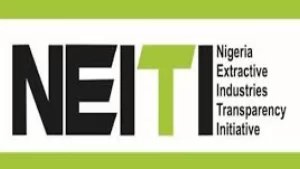
Critics say the ongoing repairs, often awarded to politically connected contractors, have become a convenient conduit for patronage and kickbacks, rather than delivering actual value. Some energy economists argue that privatization or complete overhaul of the sector remains the only sustainable solution, warning that the cycle of waste could persist unless structural reforms are enforced.
The Human Cost: Suffering Amid Plenty
While billions have been funneled into the refineries, ordinary Nigerians bear the brunt of this mismanagement. The country’s reliance on imported fuel has driven up costs, exacerbating economic hardship for millions.
Fuel scarcity, long queues at filling stations, and soaring prices have become a way of life, despite Nigeria’s status as Africa’s largest oil producer. The failure to operationalize these refineries has denied citizens affordable fuel, job opportunities, and the economic ripple effects of a functional refining sector.
As the CEO of the Centre for Promotion of Private Enterprise (CPPE), Dr. Muda Yusuf, noted, “The prospect of these refineries working efficiently is quite dim because of their age and technology.” This inefficiency has left Nigerians trapped in a cycle of poverty, unable to benefit from their nation’s natural wealth.

Expert Insights: A Call for Accountability
Energy law expert at the University of Lagos, Prof. Dayo Ayoade, argues that the NNPCL’s inability to manage the refineries is evident in the “deteriorated state” of the facilities. He points out that the corporation has spent approximately $18 billion while maintaining a bloated workforce that produces little value.
Ayoade emphasizes that as a partially privatized entity, the NNPCL should divest unprofitable assets like the refineries to focus on more viable investments. However, he warns that any sale must be strategic to avoid further devaluation of national assets.
The prospect of privatization raises concerns about job losses, with Ayoade noting that unions may resist, fearing layoffs of redundant staff. This tension underscores the broader challenge of balancing economic reform with social stability.
ADC Demands Audit Before Refinery Sale
The opposition coalition, ADC, has rejected the government’s plan to privatise the nation’s refineries without first accounting for years of failed rehabilitation efforts.
“The ADC believes that before any conversation about privatisation can proceed, there must be a comprehensive forensic audit of all funds allocated to refinery rehabilitation from 2010 to date,” the party said, insisting on “a third-party technical assessment to determine the true status and potential of the assets in question.” It described any attempt to sell the refineries before such audits as “not just illegitimate, but criminal.”
The ADC criticised the apparent contradiction in official statements claiming the Port Harcourt and Warri refineries had resumed partial operations, only for the same assets to be slated for sale. “ADC is concerned about the perennial waste and underhanded dealings in the name of turnaround maintenance that never turned anything around but the personal fortunes of those involved,” the statement read.
Quoting Africa’s richest man, Aliko Dangote, the ADC noted his public doubts that the state-owned refineries could ever work again. “Government cannot, in good conscience, expend public funds on assets under the guise of rehabilitation, only to turn around and offer them for sale, without accountability on the investments already made and without any public reckoning,” it added.
Legal and Ethical Concerns: A Constitutional Dilemma
Human rights lawyer Femi Falana, SAN has raised significant legal objections to the proposed sale, arguing that the refineries are owned by the Federation—comprising the federal government, 36 states, and 774 local governments—under Section 44(3) of the 1999 Constitution.
Falana contends that selling these assets to a select group would violate Section 16(2)(c), which prohibits wealth concentration in the hands of a few. He also highlights an ongoing investigation into the alleged diversion of $2.9 billion allocated for rehabilitation, warning that any sale without resolving these issues could be deemed “criminal.”
Falana’s stance reflects a broader demand for transparency and accountability, critical in a nation where public trust in institutions is fragile.
Privatization Debate: A Viable Solution or a Risky Move?
The Petroleum and Natural Gas Senior Staff Association of Nigeria (PENGASSAN) advocates for partial privatization, proposing a model similar to the Nigeria Liquefied Natural Gas (NLNG), where the private sector holds a 51% stake.
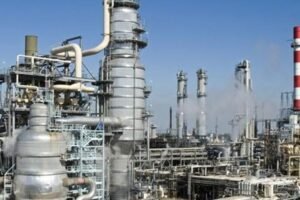
PENGASSAN President, Festus Osifo argues that this approach would ensure efficient management while retaining government influence.
However, the ADC warns that without a comprehensive forensic audit and public consultation, privatization risks becoming a conduit for cronyism.
The opposition coalition questions the sudden shift from claims of operational refineries to plans for their sale, citing a lack of policy consistency. This debate highlights the delicate balance between economic pragmatism and the need to safeguard national interests.
The Dangote Benchmark: A Private Sector Success Story
Dangote’s 650,000-barrel-per-day refinery in Lekki stands in stark contrast to the state-owned facilities. Built after the failed 2007 acquisition, it dedicates over 50% of its output to petrol, compared to the 22% from government refineries when operational.
Dangote’s pessimism about the state refineries’ future is telling: “It’s like trying to modernize a car built 40 years ago… the body will not be able to take the shock of that new technology engine.” His success underscores the potential of private investment but also highlights the government’s failure to replicate such efficiency.
For ordinary Nigerians, the operational Dangote refinery offers hope for reduced fuel prices, but its benefits are yet to fully materialize amid regulatory and market challenges.
Corruption Allegations: A Black Hole for Public Funds
The ADC’s call for a forensic audit resonates with widespread allegations of corruption. Former President Obasanjo’s claim that “those people should be in jail” reflects the belief that funds allocated for refinery maintenance have been siphoned off.
The National Assembly reported that over N11.3 trillion was spent on turnaround maintenance between 2010 and 2020, with no significant increase in refining capacity. The ADC notes, “The infrastructure is obsolete, the operations are hollowed out, and the entire value chain has become a black hole for public funds.”
This mismanagement has not only crippled the refineries but also deprived communities in oil-producing regions of development, fueling unrest and environmental degradation.
Neglected Communities and Economic Strain
The neglect of oil-bearing communities exacerbates the suffering of ordinary Nigerians. PENGASSAN’s Osifo highlights environmental degradation and lack of infrastructure in these areas, calling for full implementation of the Petroleum Industry Act’s provisions for host communities.
The economic strain extends beyond these regions, with low-income earners facing increased tax burdens despite stagnant wages. Osifo argues for raising the tax-exempt threshold from N800,000 to N1.5 million annually to ease the burden on workers.
The failure of the refineries, coupled with reliance on imported fuel, has inflated living costs, leaving many Nigerians struggling to afford basic necessities in a resource-rich nation.
A Path Forward: Transparency and Strategic Reform
The proposed sale of Nigeria’s refineries could mark a turning point, but only if executed with transparency and strategic foresight. Experts like Dr. Yusuf caution against repeating past mistakes, urging a fundamental change in the business model through privatization or decoupling from bureaucratic inefficiencies.
The ADC’s demand for a legislative hearing involving civil society and anti-corruption agencies underscores the need for public accountability. As Nigeria grapples with its energy security, the plight o ordinary citizens—caught between fuel scarcity and economic hardship—must remain central to any reform.
The refineries’ saga is a stark reminder of systemic failures, but it also presents an opportunity to redefine Nigeria’s energy future for the benefit of all its people. With the right political will, transparent audits, and genuine stakeholder engagement, these once-decaying assets could be transformed into engines of economic revival.
Beyond the pipelines and storage tanks lies a chance to restore public trust, create sustainable jobs, and position Nigeria as a true leader in Africa’s energy transition. The question now is whether this moment will be seized—or wasted like so many promises before it.

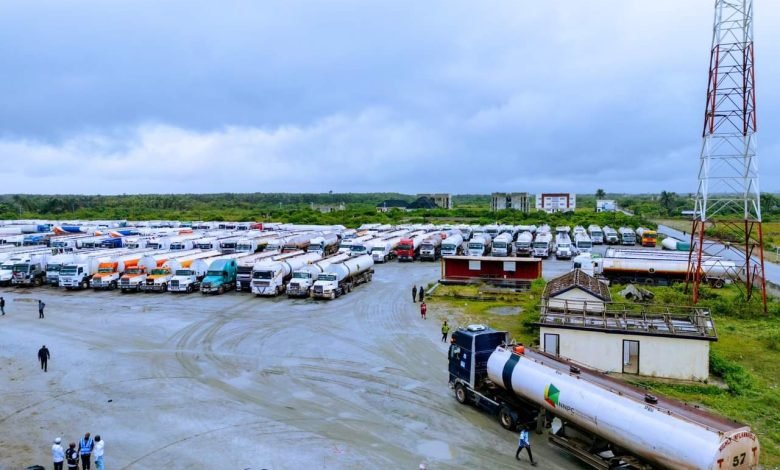


Cappadocia romantic getaway Grace L. ★★★★★ Turkish Night show was EPIC! Whirling dervishes, folk dances, and unlimited local wine. Book the front row! https://www.youtube.com/@travelshopbooking
Mikrokredit zaim — apply now
Лаки Джет, 1WIN и Lucky Star — тройной выбор для фанатов азартных игр.